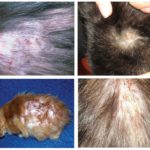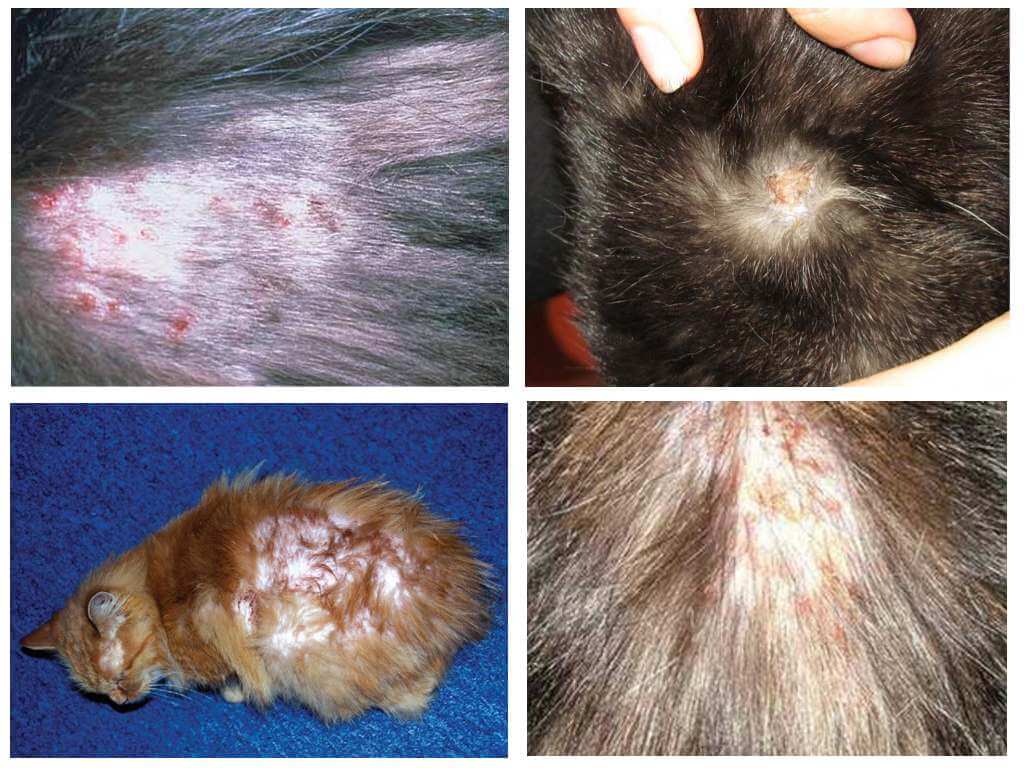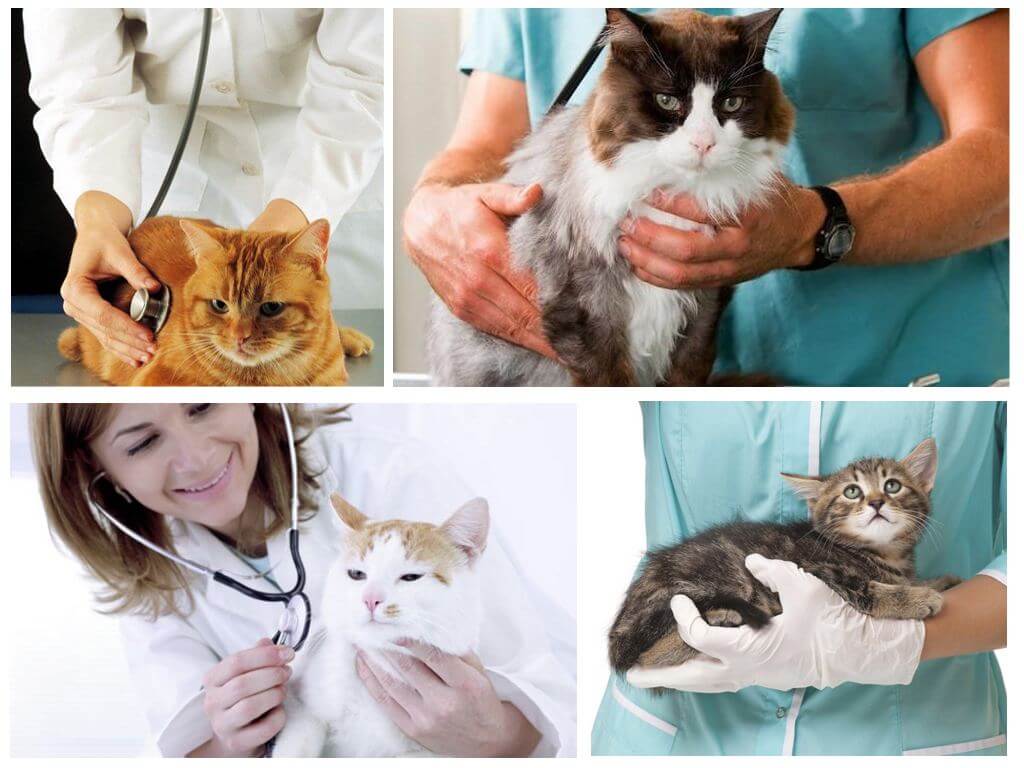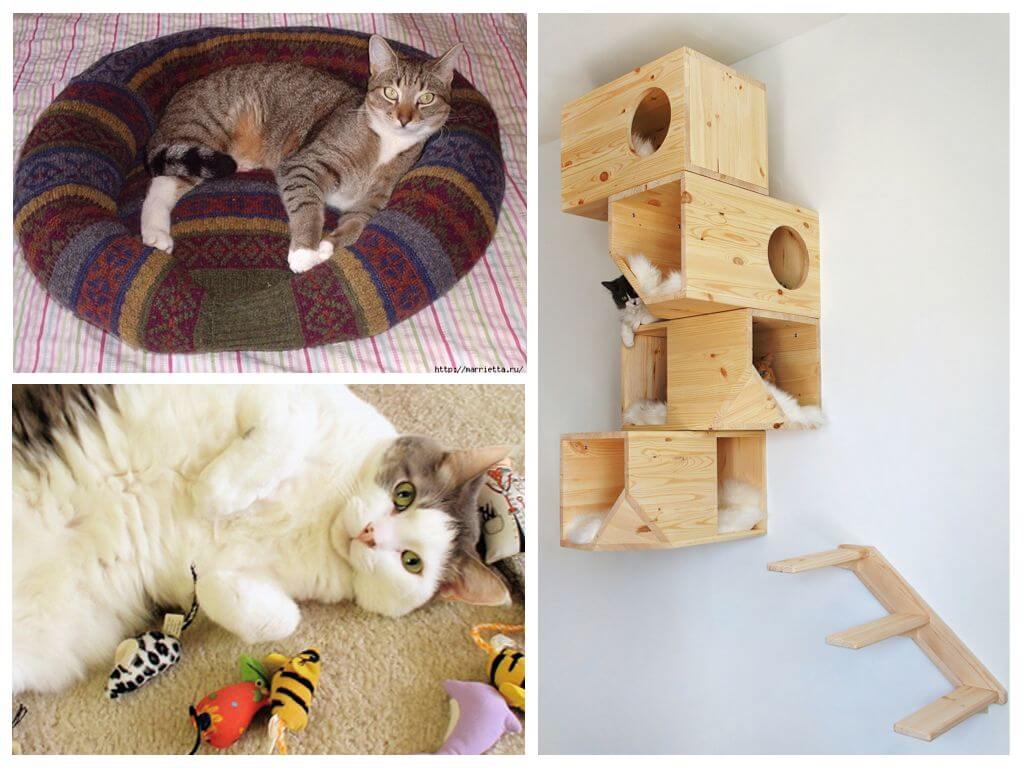A cat is allergic to fleas - than to treat
Content
- Allergic to flea bites in cats
- Trip to the vet
- Flea and cat litter processing
Cat fleas - small insects that live in animal hair. The bite of a parasite in a cat can lead not only to skin infections, but also cause an allergic reaction. Flea allergy is perhaps the most common disease in pets. This is how the pet's immune system reacts to foreign substances (allergens or antigens), trying to get rid of them. Below you can see what a flea allergy actually looks like in the photo.
Most often allergic to fleas in cats is observed in young animals or even small kittens. The longer this disease results, the harder the body's reaction. With an increase in insect activity in the warm season, the risk of allergies increases several times.
Symptoms of the disease
Caring owner can understand that a cat is allergic to fleas (allergic dermatitis) by the following features:
- severe itching - the pet is very often itchy, and also tries to bite its fur and skin;
- breathing problems - coughing, wheezing when you inhale and exhale;
- fluid discharge from the nose and eyes;
- hair loss, the consequence of which may even become baldness of some parts of the animal's body;
- the presence of papules - small red bumps on the skin surface;
- reddening of the skin, the presence of scratches and wounds.
Most often, these symptoms can be observed in cats in the groin or in the area closer to the base of the tail. In more rare cases, the parasites are activated on the face and neck of the pet, and almost never fleas attack the cat's paws.
The above symptoms may occur within a few days. Secondary infection is especially dangerous. It occurs because the cat actively combs its skin before wounds form. They are the source of infection by pathogenic fungi and bacteria.
How to treat allergies in cats
Each owner, faced with the occurrence of allergies from your pet, is puzzled than to treat an animal.
Consultation with a specialist is the first step to be taken to solve this problem. The doctor can make a diagnosis, both for visual signs and for the results of a skin test or for a special blood test.
Use of off-the-scenes
It is necessary to limit the animal from the effects of provoking factors, that is, take measures to killing fleas in a cat. There is a mass antiparasitic drugsHowever, their choice depends on each specific case and the individual characteristics of the pet. So in the presence of scratching and skin damage means for external use will not work. Some drugs may have a side effect or be addictive.therefore, treatment should be prescribed only by a specialist.
For the purposes of prophylaxis, many baleen owners use insecticidal shampoo, which has a mild effect and is effective with a slight degree of infestation of cats with fleas. Excellent proven detergents: Leopard, Meadow, "Insectin" and "Phytoelite".
Antiparasitic agents can be made in the form of injections and pillswhose advantage is the safety of the animal. Sprays have a good effect. collars and drops. In addition to the instant effect, they have a long period of exposure to the parasites. Their range is quite large, which allows you to make a choice based on your own preferences:
- Inspector;
- Advantagege;
- Blohnet;
- Stronghold;
- Dana Ultra Neo;
- Rolf Club 3D;
- Delicious;
- Drops on withers 4 with a tail;
- Front line;
- Barrier;
- Helminthal;
- Celandine.
However, some animals may be allergic to flea drops or when using a spray.
Housing processing
Not only a cat or a cat needs treatment, but also the room itselfin which the pet lives. For this use aggressive insecticides. Also, this procedure should be subjected and accessories of the animal: his litter, toys, house. It is very important to ensure that the fleas do not reappear, since even a single flea bite can provoke a recurrence of the disease.
Antiallergic Therapy
If a cat is allergic to fleas, it must be treated without fail, since over time, the effects of the disease can only worsen.
- If there are signs of allergy, the animal must be given an antihistamine drug, the dosage of which is selected by a veterinarian. This medicine is suprastin or diphenhydramine.
- Hydrocortisone ointment will help reduce the itching of the cat. However, if there is damage on the skin, its use is contraindicated.
- For the healing of wounds resulting from scratching, use chloramphenicol ointment. The drug prevents the further spread of the inflammatory process. A good healing effect has a cream, which includes aluminum. This is Aluminum or Aluminum Spray.
When treating a cat, it is important not to allow her to lick off the medicine from her coat, as this can lead to poisoning.Relieve the situation will help a special collar-tube, which is worn on the neck of the cat and makes it impossible to lick themselves. - In particularly difficult cases, a specialist can prescribe hormone injections that block allergic symptoms and provide immediate relief. Hypoglossic drops, which contain flea antigens, can also be prescribed. They form a healthy immune response to flea bites.
- In the presence of secondary infections, a course of antifungal drugs or antibiotics is needed.
In order to never be allergic to flea bites in cats, it is necessary to regularly inspect the pet's coat and, if necessary, use anti-flea drugs. After all, to prevent the disease is much easier than to treat it.











